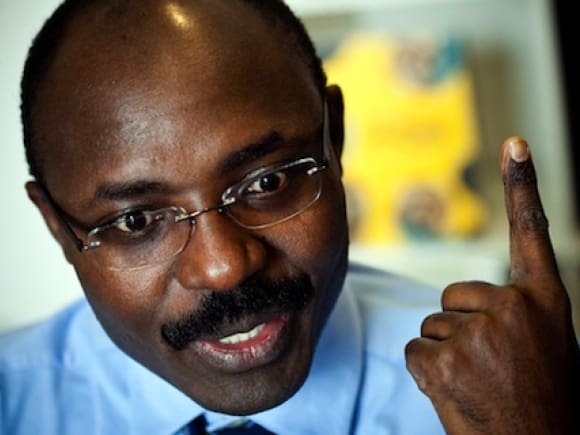Rafael Marques has described Angola’s diamond mining industry as being plagued by murders, beatings, and arbitrary detentions and filed a criminal complaint against top generals. In response, a criminal libel case was brought against him.
In 2011, Angolan journalist and human rights activist Rafael Marques published a book exposing the exploitation and violence that is common in Angola’s multi diamond mining industry. Angola is the world’s fifth largest producer of diamonds, but according to Marques, the industry is plagued by murders, beatings, and arbitrary detentions, and he has called on foreign countries to boycott Angola’s ‘blood diamonds’.
While human rights campaigners have lauded Marques’s work – he has won the Civil Courage Prize, which is awarded to human rights defenders who put themselves in grave danger, for his work – the Angolan authorities see him as a thorn in their side. When Marques filed a criminal complaint with the country’s Attorney General seeking the prosecution of powerful figures in the country’s armed forces for complicity in human rights abuses, they responded by filing a libel complaint against him in Portugal and when that failed sought a criminal prosecution against Marques in Angola.
The Media Legal Defence Initiative will be assisting Mr Marques in the defence of this complaint, and with fifteen other media freedom and human rights groups, has formally written to Angola’s Attorney General urging him to drop the defamation charges. Should the prosecution nevertheless go ahead, MLDI will be supporting Marques’s defence.
This is not the first time Marques has been pursued in the courts. He was previously convicted of defaming the President of Angola in 2002, a conviction which was later found to be in violation of the right to free speech by the United Nations Human Rights Committee. The Committee ordered Angola to take steps to ensure such malicious prosecutions did not occur again.
Update, 2 August 2013:
A criminal prosecution has now been brought by the Angolan authorities. MLDI and other media freedom and human rights groups have filed a complaint with the UN and African Commission Special Rapporteurs on Human Rights Defenders and Freedom of Expression, claiming that the prosecution breaches Mr Marques’s right to freedom of expression.
Attached files:
![]() Rafael Marques de Morais Letter of Allegation.pdf
Rafael Marques de Morais Letter of Allegation.pdf
Recent News
Landmark Ruling: Kenya’s High Court Declares Colonial-era Subversion Laws Unconstitutional
Media Defence welcomes the verdict of the High Court in Nakuru, striking down sections of the Kenyan Penal Code which criminalise subversion, citing them as relics of colonial oppression that curtail freedom of expression. Justice Samwel Mohochi, delivering the judgment, asserted that these provisions were overly broad and vague, stifling dissent rather than serving any […]
UN Rapporteurs Call for Protection of Brazilian Journalist Schirlei Alves
UN Rapporteurs Call for Protection of Brazilian Journalist Schirlei Alves Amid Defamation Charges Stemming from Rape Trial Coverage A letter dispatched by UN rapporteurs to the Brazilian Government calls for protective measures for women journalists covering cases of sexual crimes. The letter also denounces the conviction of Brazilian investigative journalist and women’s rights defender, Schirlei […]
Convite à apresentação de candidaturas: Cirurgia de litígio em português na África Subsariana
Cirurgia de litígio em português na África Subsariana Aplique aqui 23 a 25 de julho de 2024 em Nairobi, Quénia Prazo: 3 de maio A Media Defence está a convidar advogados sediados na África Subsariana que falem português a candidatarem-se a participar numa próxima cirurgia de litígio sobre o direito à liberdade de expressão e […]



